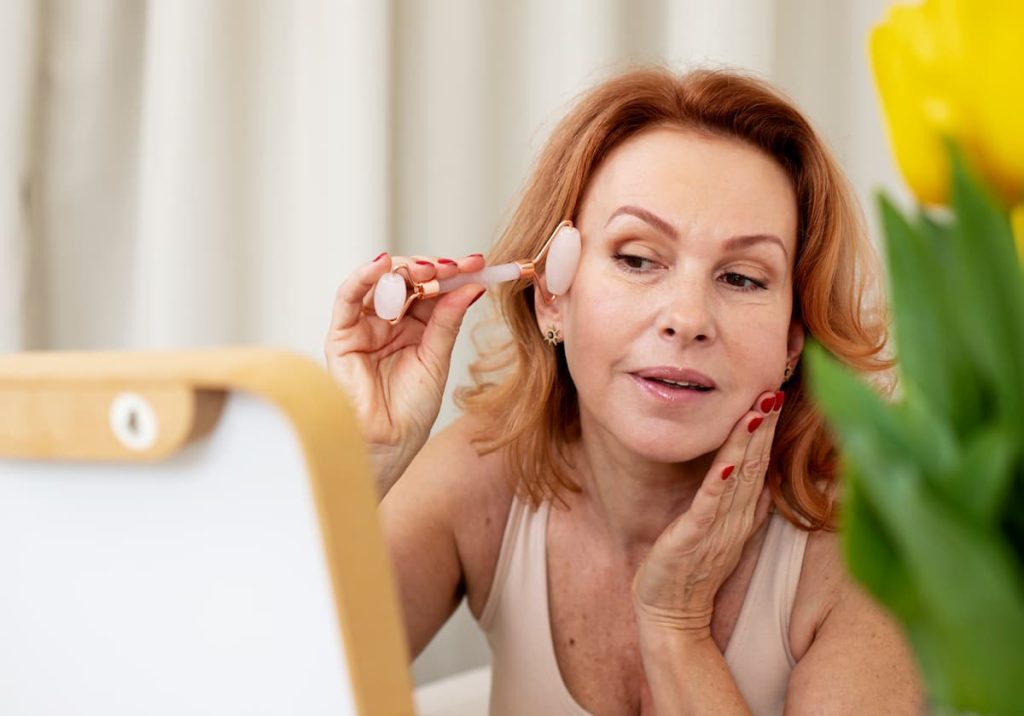While collagen supplements have shown some promise in improving skin hydration, elasticity, and reducing wrinkles, the evidence is still inconclusive. A balanced approach to boosting collagen naturally remains one of the most effective ways to combat signs of ageing.
Ageing is an inevitable part of life that affects every aspect of our body, especially the skin. Over time, fine lines, wrinkles, and a loss of skin elasticity become visible signs of ageing, leaving many of us searching for solutions to maintain a youthful glow. In response, the market has become flooded with anti-ageing products, with collagen supplements leading the pack. Promising to restore skin firmness and reduce wrinkles, collagen has become a go-to remedy for many. But do these collagen supplements really work in reversing the effects of aging? Read on to find out more about the role of collagen and its effectiveness. For personalised advice, consult with the best dermatologists in Gurgaon, such as Dr. Anju Mangla, to understand what works best for your skin.
What is Collagen?
Collagen is a vital structural protein found throughout the body, including the skin, nails, hair, cartilage, tendons, and bones. It works alongside compounds like elastin and hyaluronic acid to support skin elasticity, volume, and hydration. Collagen also plays a role in forming proteins like keratin, which are essential for healthy skin, nails, and hair. While the body naturally produces collagen using amino acids from protein-rich or collagen-rich foods, factors like aging, smoking, sun exposure, and alcohol consumption can reduce collagen production over time.
Science Behind Collagen Supplements and Skin Ageing
Collagen supplements are typically derived from sources like cattle, pigs, fish, or chicken. They often contain peptides, which are short chains of amino acids that contribute to the production of key proteins in the body, including collagen and keratin.
A comprehensive review of 19 studies published in the International Journal of Dermatology reported improvements in skin suppleness, firmness, and moisture content among individuals who used collagen supplements. Wrinkles also appeared less noticeable. However, it’s uncertain if these effects were solely due to collagen, as many of the supplements studied included additional components like minerals, vitamins, antioxidants, coenzyme Q10, hyaluronic acid, and chondroitin sulfate.
Some randomised controlled trials have suggested that collagen supplements containing high levels of specific peptides, such as hydroxyprolylglycine and prolylhydroxyproline, may improve skin elasticity, hydration, and reduce wrinkles and roughness. However, more studies are needed to confirm the effectiveness and long-term safety of these products.
Do Collagen Supplements Have Anti-ageing Effects?
Currently, there is limited concrete evidence to support the claim that over-the-counter oral or topical collagen supplements are effective for anti-ageing. Whole collagen cannot be absorbed directly by the body. It must first be broken down into peptides, which are then absorbed through the gut and may contribute to the production of proteins like keratin or be deposited in tissues such as bone, muscles, cartilage, or tendons. To date, no human studies have conclusively proven that orally ingested collagen directly improves skin health.
How to Increase Collagen Production to Reverse Ageing?
Enhancing collagen levels naturally through lifestyle changes can be a highly effective way to address ageing. The most beneficial steps you can take for your collagen and elastin are reducing alcohol consumption, avoiding smoking or exposure to secondhand smoke, and consistently using sunscreen. Incorporating collagen-friendly foods into your diet can also support its production. These include:
- Chicken, fish, and other lean meats
- Bone broth
- Eggs
- Nuts and seeds
If you’re considering collagen supplements or drinks, it’s important to carefully examine the ingredient list and protein profile. Opt for products with minimal additives or fillers and prioritise those containing higher concentrations of hydroxyprolylglycine and prolylhydroxyproline, as they are more effective in reducing wrinkles and enhancing skin moisture. Before starting any new supplement, consult your doctor, especially if you have medical conditions like gout or others that require protein intake restrictions. This ensures the supplements align with your health needs and are safe for use.
Conclusion
While collagen supplements have gained popularity as a potential anti-ageing solution, their effectiveness in reversing ageing remains a subject of ongoing research. Although some studies suggest that collagen supplements can improve skin elasticity, hydration, and reduce wrinkles, the results are often influenced by additional ingredients in these products. Natural methods, such as maintaining a healthy lifestyle, reducing harmful habits, and incorporating collagen-promoting foods, may offer more sustainable benefits for skin health. If you’re considering collagen supplements, choose high-quality products and consult with a specialist like gastroenterologist in Pune, Dr. Anju Mangla, to ensure their suitability for your needs.
